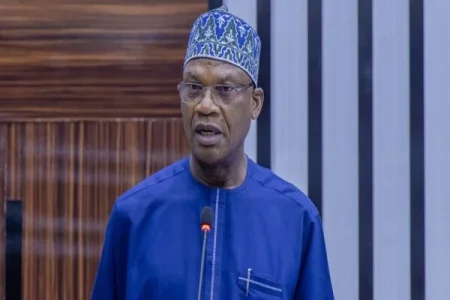
A 15-year-old student, Chinaemere Opara, has filed a lawsuit against Nigeria's Ministry of Education, JAMB, and NUC over a new policy restricting university admissions to applicants aged 18 and above. The case challenges the constitutionality of the age limit and advocates for equal access to education for all.
15-year-old Chinaemere Opara, a Senior Secondary School (SSS) student, has filed a lawsuit against Nigeria's Federal Ministry of Education, the Joint Admissions and Matriculation Board (JAMB), and the National Universities Commission (NUC) over a controversial policy that restricts university admissions to applicants aged 18 and older. This legal action comes in the wake of an announcement made by the Minister of Education, Prof. Tahir Mamman, in July, stating that beginning in 2025, candidates under 18 years would be barred from sitting for the Senior Secondary Certificate Examination (SSCE), a requirement for admission into higher institutions.
The announcement ignited fierce debates among education stakeholders and parents, leading to a policy revision allowing 16-year-olds to gain admission this year. However, Opara's lawsuit, filed on October 14, 2024, through his father and guardian, Mr. Maxwell Opara, aims to challenge the fundamental validity of the policy.
The case was lodged at the Federal High Court in Abuja, with the originating motion marked FHC/ABJ/CS/1512/2024. In the suit, Chinaemere argues that the policy is discriminatory and unconstitutional, violating his rights to education and freedom of expression as guaranteed by the Nigerian Constitution and the African Charter on Human and Peoples' Rights.
In his legal plea, Opara sought multiple declarations, including that the age restriction infringes upon his right to peaceful assembly and association. He contends that this policy obstructs his ability to make choices regarding when to enroll in examinations such as the West African Examinations Council (WAEC) and JAMB, thus denying him equal access to public service. His request for a perpetual injunction aims to prevent the Ministry of Education and associated bodies from interfering with his rights.
In an affidavit filed by Mr. Maxwell Opara, he highlighted the detrimental impact of the age restriction on his son's aspirations. Chinaemere, who plans to write WAEC, NECO, and JAMB examinations in 2025, believes that the policy undermines his right to education, regardless of his academic capabilities. The affidavit emphasizes that there is no federal or state law establishing an age limit for university admission, and many Nigerian universities already require candidates to meet certain academic qualifications rather than impose age restrictions.
Mr. Opara expressed his concern, stating that the Minister's declaration that no brilliant student under 16 would qualify for university admission has left Chinaemere feeling that his educational rights are under threat. The student aims to pursue a six-year degree in Medicine and Surgery, followed by a year of compulsory medical service, totaling eight years of study.
As of now, the case is awaiting assignment to a judge, and its outcome could have significant implications for Nigeria's educational landscape. When contacted, the Ministry of Education's spokesperson, Mrs. Folasade Boriowo, acknowledged that she was unaware of the lawsuit but reiterated that discussions regarding the minimum age for admission were ongoing. “This is not a closed matter,” she stated, hinting at potential revisions to the policy following the public outcry.




